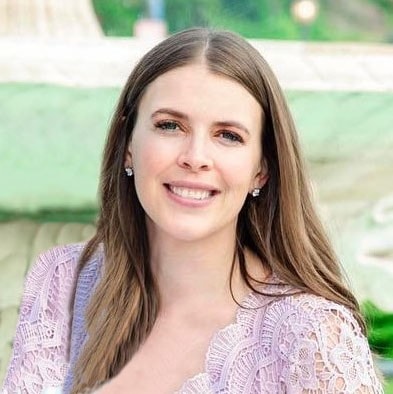USER STORIES
Finding new ways to measure the unobservable
Whitney Coggeshall envisioned a counseling career until a statistics course put her on a path to becoming a measurement scientist.
TOP 3 LESSONS
- There are countless types of careers you can pursue if you like data, analytics and statistics; opportunities are everywhere. Don't be afraid to explore nontraditional outlets.
- If you know what you want to do, pursue all your necessary degrees and certifications early so you can grow your career right out the gate.
- Conferences are an excellent way to make professional connections, share your own insights and get noticed by potential employers.
THE JOURNEY
Bachelor's and Master's Degrees:
Psychology and sociology at James Madison University
PhD:
Educational research and measurement at University of South Carolina-Columbia
Current Career:
Measurement scientist, American Board of Internal Medicine
SEE THE BENEFITS
ON LEARNING SAS®
Whitney first learned SAS in grad school; the course she took was one of the most marketable courses she's ever had. She still uses SAS in her current career and is certified in Base SAS.
10
The number of years it took for Whitney to complete her advanced education before starting her career.
80% / 20%
As a measurement scientist, Whitney says her job is 80% research, 20% operational.
WHAT DOES A MEASUREMENT SCIENTIST DO?
Measurement scientists use research and analytics to develop professional competency assessments.
I love using data for good. I find that rewarding.
MY STORY
Q: How did you first get interested in computer science? Did you take courses in high school that sparked your interest?
A: I wasn't interested in computer science when I was young; I went to a small rural high school, and STEM classes weren't really available. In college, I became a psychology major and had to take a statistics and research methods course and I loved it. At the time I wanted to become a counselor. Once I graduated, I found out my school had a good master's degree program. It was when I was a graduate assistant that I became interested in assessment. My interest flourished from there.
Q: At what point did you learn SAS?
A: I didn't learn SAS until the first year of my master's program. It turned out to be the most marketable class I've ever taken.
Q: How did your master's degree program impact your career path? Is this when things started falling into place when it came to your interests?
A: My master’s degree offered courses focused on statistical methods, which guided me more toward the assessment field. I realized I could be involved in psychology without actually being a counselor. I got interested in measuring the unobservable, and started getting more involved with educational assessments.
Read more of Whitney's story
Q: Did you start working after your master's degree or go straight into a PhD program?
A: I went straight into my PhD program at the University of South Carolina because I knew I wanted to do assessment. I didn't know exactly what type of assessment I wanted to do, but I knew I wanted to learn things from a different perspective.
Q: It can be tough to go straight through all your education, from undergrad to PhD. If you had to do it all over again, would you do it the same way?
A: I would definitely do it the same way. You usually need a PhD to get into the assessment field, so I was able to finish my degree and get my career going instead of working for a while and then going back to school. But spending all those years concentrating on school was definitely mentally draining. It was an intense 10 years. In the end, all that effort paid off and I was in a field I loved.
Q: Describe what your career is now. What do you do on a day-to-day basis?
A: A measurement scientist is someone who uses research and psychometrics to improve assessments. Specifically, I work in medical certification assessment. Operationally I do all the statistical work needed to create a valid and reliable assessment. I use analytics more in my research role, where I use data to innovate the assessment process.
Q: What do you like best about your job?
A: I like that my role is very research heavy. The work that I do creates solutions to ensure that our scores are accurate while also being fair to examinees. It’s also fun to see my research get implemented! Basically, my job is a critical thinking role. I get to solve a puzzle every day.
Some people want their first job to be their dream job, but sometimes it takes awhile to find your balance.
TOOLS FOR SUCCESS
Base SAS® Software
Flexible, extensible 4GL and web-based interface for data access, transformation and reporting.
SAS® Certification
Get certified in SAS to validate your skills and set yourself apart.
SAS Global Forum
This conference offers workshops, presentations, demos and networking opportunities for anyone seeking to broaden their SAS skills and analytics futures.

Explore Amazing Careers in Analytics


